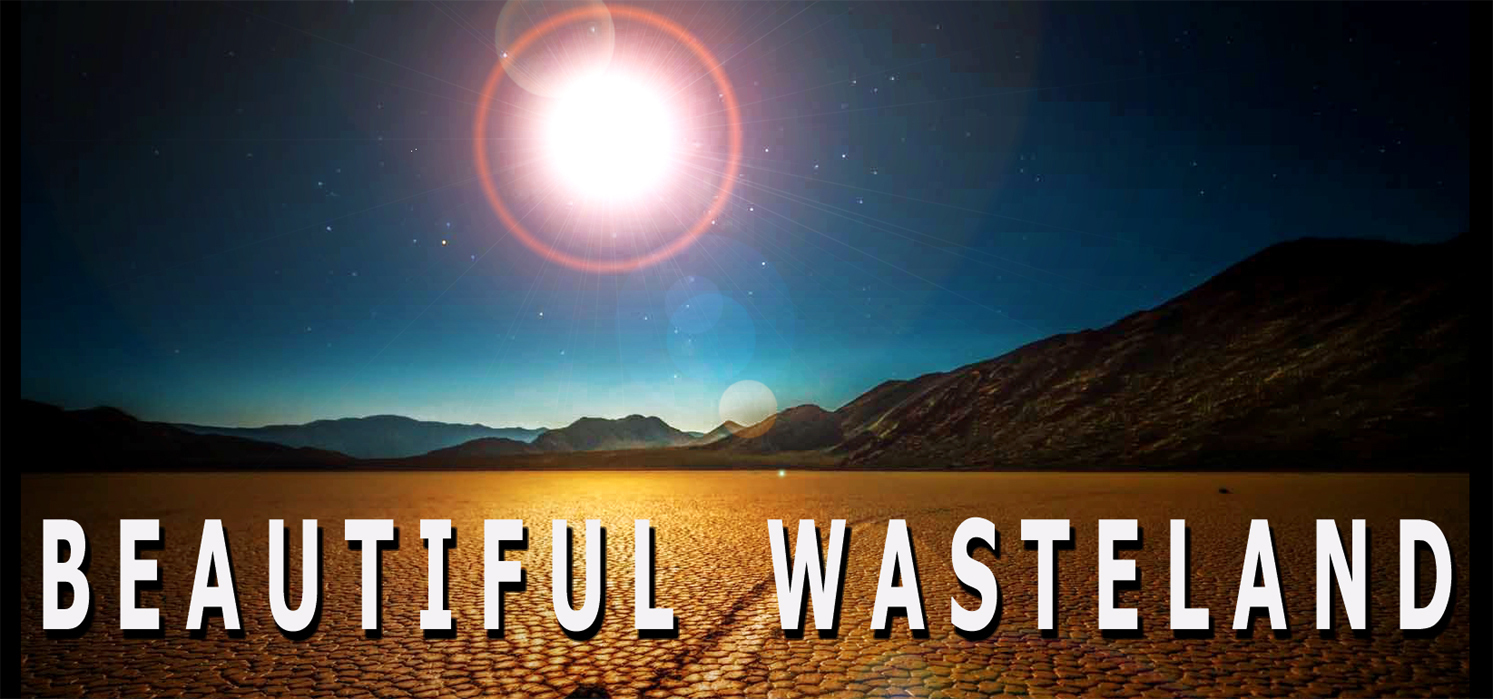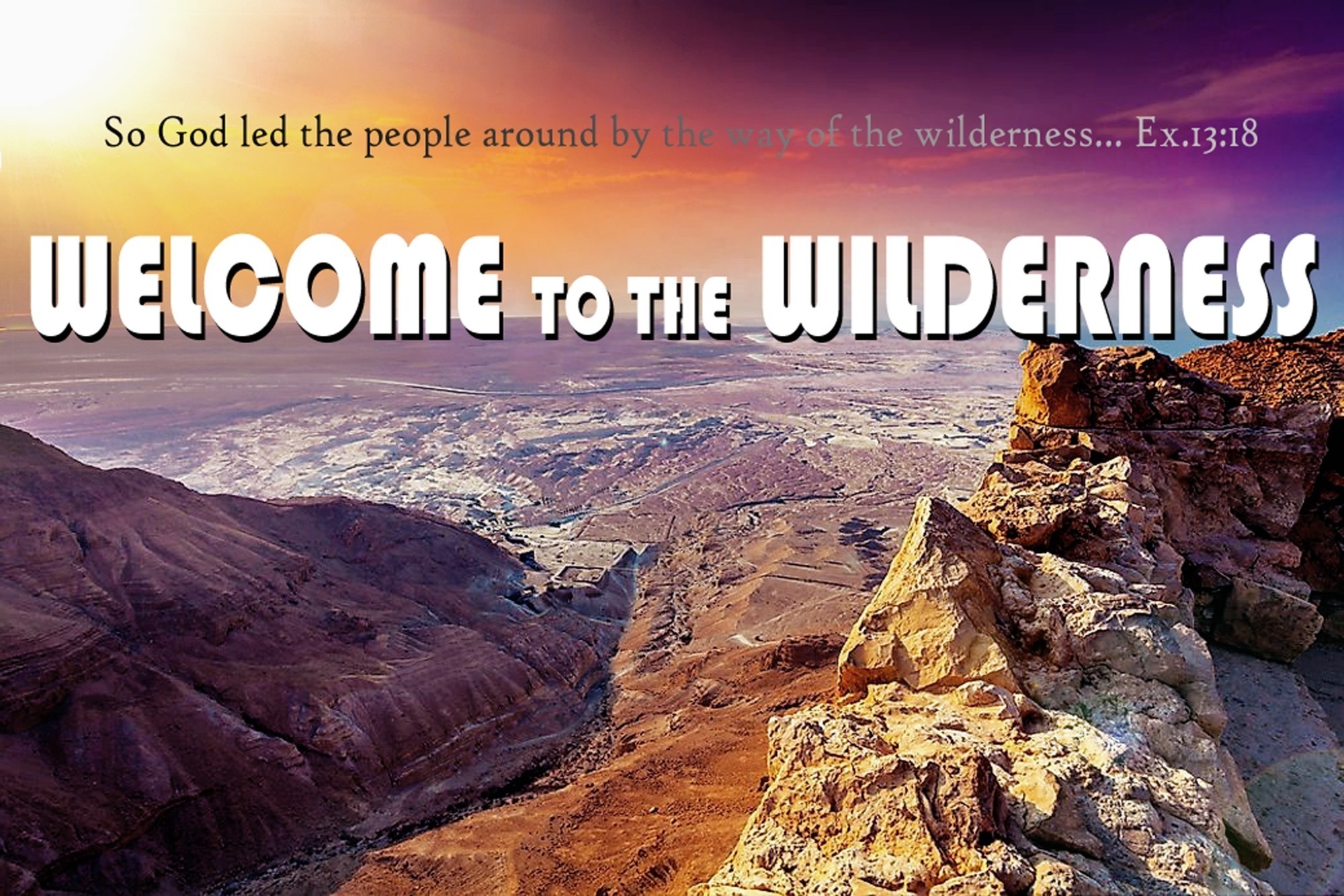
GOD'S BEAUTIFUL GRACE PERMEATES OUR WASTELAND
The Lord found them in a desert land, in an empty, howling wasteland. He surrounded them and taught them; He guarded them like the pupil of His eye. - - Deuteronomy 32:10 NLT
Just a few weeks ago, the government of Ukraine began the process of applying for the distinction of a UNESCO World Heritage designation for the site of the 1986 Chernobyl nuclear disaster, stating: ‘We believe putting Chernobyl on the UNESCO heritage list is a first and important step towards having this great place as a unique destination of interest for the whole of mankind.’ Yes, you actually read that correctly… the barren and desolate wasteland of decaying buildings and melted rubble… not to mention a little radioactivity, could soon be the premier destination atop your vacation ‘bucket list’ (should we ever be able to leave the province again).
Just as Ukrainian leaders are inviting public recognition and celebration for the significance of a nuclear wasteland, we find Israel’s leader doing something remarkably similar in Deuteronomy 32:10. After persevering with Israel through 40 years of life in the desert, 120-year old Moses stands at the edge of the Promised Land and delivers his poignant, and at times, even agonizing final words to the people of God. Looking back on their tumultuous time together in the wilderness, Moses doesn’t mince words about the often brutal and unforgiving environment through which Israel had journeyed. In fact, Moses actually describes the desert as, “… an empty, howling wasteland.” Perhaps the Ukrainians could use this as their slogan - CHERNOBYL: Come visit the empty, howling wasteland... it’s fun for the whole family.
‘Tohu’ is the shockingly graphic term that Moses uses to describe the wilderness as a wasteland, and it means, ‘empty’, ‘desolate’, ‘barren’ or ‘nothingness’. This word is likely most recognizable to us in Genesis 1:2, where it describes the formless, empty void and primordial chaos of the deep. Ok, ok… at this point I can actually hear the exasperated sighs, ‘Really?… Come on, Josh! Not only is this yet another post about facing the adversity of the wilderness, but now you’re saying we’re in an empty, chaotic wasteland? Have you ever considered something a little lighter?’ (I always appreciate my wife’s candor!) Hey, I get it and I certainly sympathize with the sentiment. To be completely honest, I confess that viewing the wilderness as the backdrop to our Christian journey can often leave the impression that we are continually trudging along from day to day through an incredibly dark and even morose existence; and now with Moses’ description of the wilderness as a wasteland, it seems we’ve taken things to a whole other level of gloom. BUT… that’s not the point Moses is trying to make, and that’s far from all he has to say in this verse.
When God’s words pierced the dark, formless, empty void at creation, light broke into the darkness, form sprung from the formless, substance filled the emptiness, order was established out of chaos, life occupied the lifeless void, and unparalleled beauty ultimately arose from the primal wasteland... so too in the wasteland through which we journey. To be sure, the desert reality we find ourselves in is often one of spiritual toil, peril and hardship, but there is also profound splendor and beauty to be found in the desert. In fact, Moses’ reminiscence of Israel’s time in the wilderness doesn’t terminate with the picture of a desolate wasteland, that dark image simply serves as the graphic contrast from which Moses goes on to highlight three radiant facets of God’s majestic compassion and care… the same beautiful compassion and care that continues to be granted in our own sojourn through the wasteland.
In the midst of the unforgiving, inhospitable wasteland, it is the beauty of God’s 'surrounding' or ‘encircling’ of His people that Moses first acknowledges. It is interesting to note that we find the same term for ‘encircle’ in Exodus 13:18, as Israel is ‘led around’ by God. The Israelites are never tracking God’s footprints in the sand. Moses never squints at the horizon and asks Aaron, ‘Hey, do you have the binoculars? Can you tell if that’s Him way up there on the right? Oh man… I sure hope that’s Him we've been following and not some mirage!’ God closely and intimately leads His people like a loving parent guides a young toddler learning to walk on their little, wobbly legs – by closely encircling or surrounding the child and gently directing them away from the corner of the coffee table or the open stairwell.
From God’s intimate, parental guidance, Moses then points us to the splendor of God’s ‘care’, and Moses is especially particular about the term that he employs here, referring to a very specific type of care. It’s a term used several times in Deuteronomy (1:13; 4:6; 32:7,29) and is most often translated as ‘discernment’, ‘understanding’ or ‘consideration’. We ought to remember that it was in the wilderness where Israel first received God’s statutes and precepts, and the clear communication of God’s commandments to His people is one of the most beautiful demonstrations of His profound care for them. The Lord hasn’t just dumped us in the empty, howling wasteland with an indifferent, ‘sink-or-swim’ expectation, He has compassionately imparted to us discernment, wisdom, knowledge, understanding, reasoned judgement and thoughtful reflection… through the timeless correction, instruction and training of His word. God deeply cares for us by enlightening our hearts and minds to biblical truth; the truth by which we can constantly navigate culture’s never-ending barrage of godless views; the truth with which we can walk in clarity and order through the increasingly nonsensical chaos of the world around us; the beautiful gospel truths we proclaim, that bring about new life in the wasteland.
Lastly, in light of the hostile environment around us, Moses highlights the passionate protection God exercises for His people. In the midst of a wasteland that is wholly inhospitable and set against our spiritual existence, God’s intense guardianship not only ensures the spiritual survival of His people, but it enables our flourishing. One of the most aggravating experiences is a small, almost imperceptible amount of sawdust in our eye. The same tiny piece of material would be entirely unnoticeable anywhere else on the body, but even the slightest irritation to our eye results in great distress and causes us to reflexively protect that most sensitive organ. We can step confidently into the wasteland knowing that God is just as sensitive about diligently guarding and preserving the spiritual survival and well-being of His people from the imminent, spiritual threats of our menacing environment.
Like the uninhabitable desolation of Gen. 1:2, the wilderness is utterly unconducive for our spiritual survival, but just as the Spirit of God hovered over the empty formlessness of the deep (Gen.1:3) and ultimately created beauty out of that primordial void, God, with the majestic grace and grandeur of the outstretched wings of a desert eagle, intimately, instructively, protectively hovers over us... and brings beauty to our wasteland.
He watches over His nest like an eagle, hovering over His young; He spreads His wings, catches him, and carries him on His feathers. - - Deuteronomy 32:11
